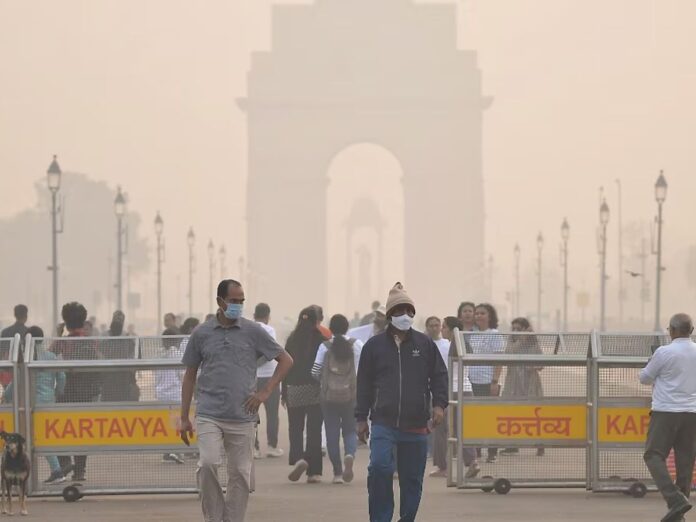New Delhi [India], December 1: The air quality in Delhi remained in the ‘very poor’ category on Sunday, with an Air Quality Index (AQI) of 316 recorded, according to SAFAR (System of Air Quality and Weather Forecasting And Research). A dense smog layer continued to envelop the national capital, with several areas showing AQI levels above 300, signifying severe pollution.
Key areas such as Dwarka Sector 8 (335), ITO (327), Okhla Phase 2 (319), Rohini (329), Vivek Vihar (338), Anand Vihar (346), and Bawana (332) recorded AQI in the ‘very poor’ range. Meanwhile, locations like Lodhi Road (256), Najafgarh (295), Pusa (289), and IGI Airport T3 (299) reported slightly better air quality in the ‘poor’ category.
The Central Pollution Control Board (CPCB) defines AQI levels as follows: 0-50 (good), 51-100 (satisfactory), 101-200 (moderate), 201-300 (poor), 301-400 (very poor), and 401-500 (severe).
A thick smog shrouded prominent landmarks, including India Gate, highlighting the worsening pollution. Residents expressed frustration and concern over the dire air quality, calling for immediate action.
Vishal Guleria, a Delhi resident, shared, “Pollution levels are too high, making it hard to breathe. Children and the elderly are suffering the most. The government must implement effective solutions to prevent this recurring problem.”
A Gurugram resident, Anisham, echoed similar sentiments, saying, “The pollution, combined with the cold, makes it difficult. Schools are closed, and daily life is affected.” Another resident, Amol, added, “The situation demands sustainable solutions and long-term policies. Citizens and the government must act decisively.”
The Supreme Court recently refused to relax the fourth stage of curbs under the Graded Response Action Plan (GRAP)-IV, stating the measures are essential to control pollution. However, the court urged the Commission for Air Quality Management (CAQM) to consider relaxing norms for schools, noting that students are missing mid-day meals, online classes, and access to air purifiers.
GRAP-IV was activated last week after Delhi’s AQI crossed the 450 mark. The four-stage GRAP outlines responses based on AQI levels: Stage I (poor, AQI 201-300), Stage II (very poor, AQI 301-400), Stage III (severe, AQI 401-450), and Stage IV (severe plus, AQI above 450).
The persistent pollution crisis in Delhi and the National Capital Region underscores the urgent need for collective action and long-term environmental policies.


